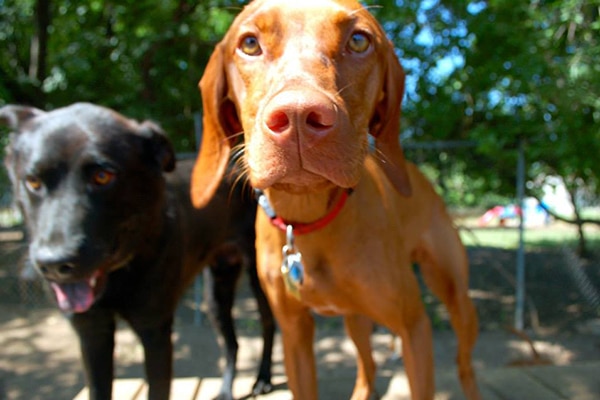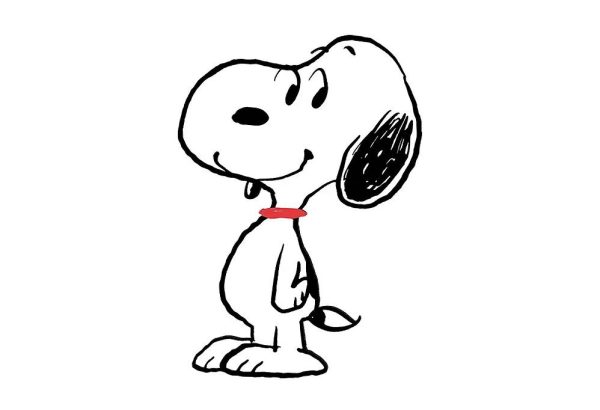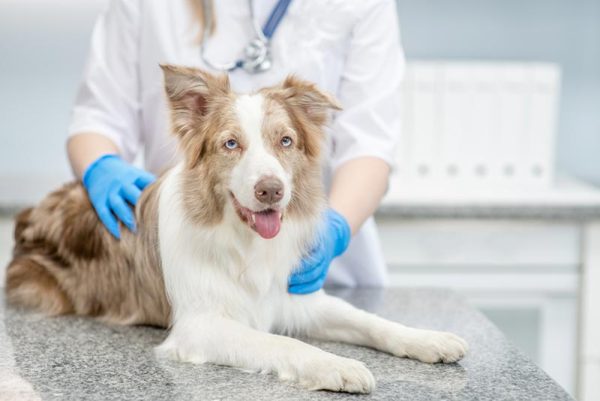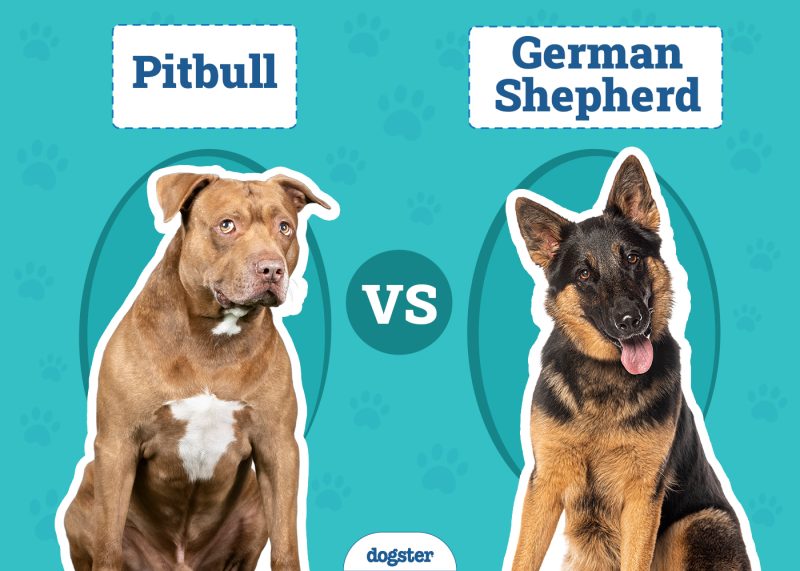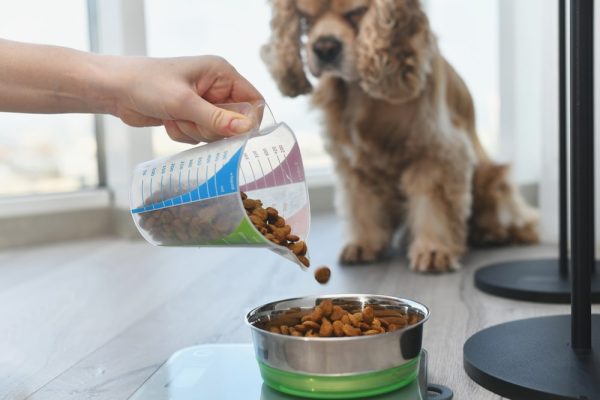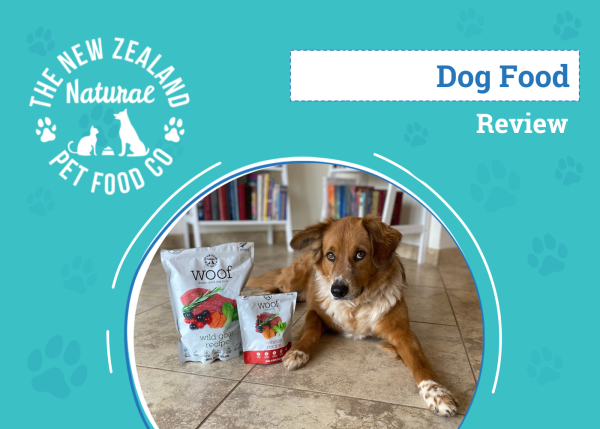I’ve done lots of training with my five-year-old Vizsla, Finley. Tons, in fact. She’s smart and energetic and really wants to work with me on new challenges. Plus, she has severe separation anxiety, so my husband and I have spent countless hours on basic training, desensitization and counterconditioning, trick training in an effort to physically and mentally exhaust her, and more. But one thing we had yet to tackle is the American Kennel Club’s Canine Good Citizen Test.
First, what is the AKC’s Canine Good Citizen Test?
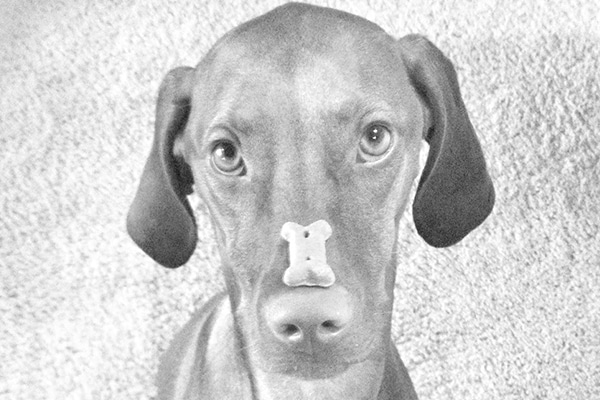
The AKC’s Canine Good Citizen, or CGC, program has been around since 1989 and is intended to instruct and inspire responsible dog ownership. Acing the test is about much more than bragging rights or framing a certificate to hang on your wall. There are practical benefits to your pup passing the 10-point exam. It’s a major bargaining chip when you’re checking into a dog-friendly hotel, it’s a good starting point for more advanced training like agility, it will give both you and your dog a boost of confidence and perhaps inspire you to do even more training together, and you may even inspire other people and pets in your community to achieve the title.
What’s more, if you’re hiring a dog sitter or walker or trying to enroll your pup in doggy daycare, having the CGC credential will be somewhat of a feather in your cap. And you’re given official acknowledgement — plus self-assurance— that your dog knows how to behave just about anywhere.
I was convinced the program was worth our time. To get started, I read the AKC’s Responsible Dog Owner’s Pledge, which covers everything from ensuring that your dog’s health, safety, exercise, training and quality of life needs are met, to picking up your dog’s poop in public places. Then, reading through the test itself, I soon realized this was something we had been preparing for since day one of welcoming Finley into our family. Of course, there are obedience classes you can register for and even formal CGC training that you can complete, but it might not be necessary if you take matters into your own hands and are motivated to help your pet. Here’s how I did it with my dog, Finley.
Test 1: Accept a friendly stranger
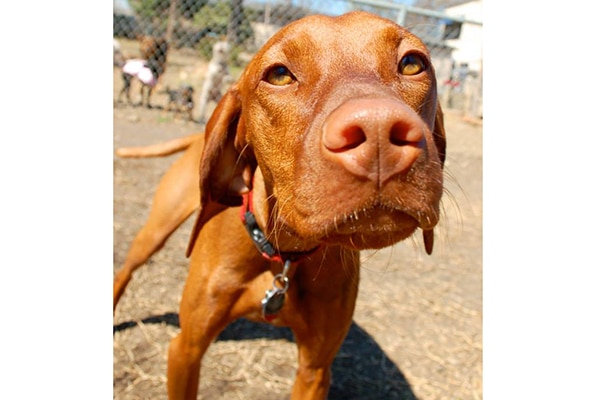
How Finley fared: Finley is the type of dog who receives a lot of attention when we’re out and about. People often approach us exclaiming, “How cute!” or “Awww!” and my husband and I often think they’re referring to our little (human) girl. Nope, they’re usually in awe of Finley. She’s a beautiful pup with a warm disposition and seems to be a magnet for friendly people.
From the very beginning when we brought her home at 7 weeks, we exposed her to all types of people in all types of situations to help her become well socialized. This has always meant a lot of leash walks around the neighborhood, running into people we know or other people with dogs who want to say “hello.” The AKC test requires your dog “show no sign of resentment or shyness” when a friendly stranger approaches to speak with the owner and shake their hand. Check and check! Finley usually just waits to be acknowledged, which usually happens soon after I am.
Test 2: Sit politely to be pet
How Finley fared: Thankfully, this is one of Finley’s favorite things to do: accept attention from a new person. And one of the first things we trained her to do is sit when we stop to greet someone or for her to receive attention. And much like test 1, we get to practice this almost every day on our walks outside. She does this successfully, again without “shyness or resentment.”
Test 3: Appearance and grooming
How Finley fared: Although Finley doesn’t require haircuts, we’ve been giving her baths, dremeling her nails, cleaning her ears and brushing her teeth from the very beginning. She certainly doesn’t love the experience of being groomed, but she tolerates it well. As instructed by her breeder, we got her used to having us touch her all over her body, put our hands in her mouth, and examine her ears and eyes. As far as appearances go, Finley is the type of dog who licks herself clean at the end of the day, so she’s always well kept. But for dogs who aren’t inclined to do that, some well-timed treats while you brush and bathe are a good idea.
Test 4: Walk on a loose lead
How Finley fared: Having plenty of experience walking dogs who pull, I was highly motivated to train my own dog to walk politely when we brought her home. Thanks to some great web articles, my husband and I were able to train her in her first year. Part of the AKC test requires doing a right turn, a left turn and an about turn, with at least one stop in between. For a million reasons, these are all part of our daily walks so Finley is more than accustomed to following our sometimes erratic routes.
Test 5: Walk through a crowd
How Finley fared: I’m the type of person who will take my dog with me wherever I’m going, whether it’s the farmers’ market, the park or dog-friendly errands like Home Depot. So while we don’t get tons of practice on crowded city streets, Finley has plenty of experience weaving through people both indoors and out.
Test 6: Sit and down on command, and stay in place
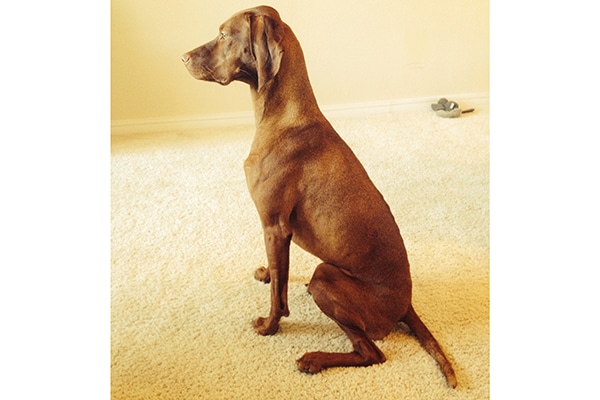
How Finley fared: For Finley, sit was the easiest command to learn and she does it 100 times a day for us now. But there were times I never thought Finley would learn the down command. She seemed averse to lying on the ground from a standing or sitting position, unless it was to collapse in a heap at the end of the day. But lots of training (and treats!) finally got us there. Getting her to stay was not as difficult as I had feared. Still, she waits politely for her instructions and is always happy-as-can-be when we give her the “ok!”
Test 7: Come when called
How Finley fared: Being a velcro dog, Finley has to be told to “stay” to get further than a few feet from us. This test requires walking 10 feet away from your dog, so I would have Finley sit or go into the down position, then stay while I walked away. Again, she’s vigilantly listening for the “come!” command and more than happy to oblige the mini reunion.
Test 8: React to another dog
How Finley fared: Introducing Finley to other dogs from an early age (after she received all her shots, of course) meant putting her on the path to good canine citizenship. At this point, I’m confident my pup will get along with just about any other dog. This portion of the test involves other dogs and their owners approaching for a greeting but the dogs “should show no more than casual interest in each other.” I’ll be the first to admit, my dog is an enthusiastic butt sniffer. So to make sure she keeps her distance I simply tell her to “sit” and “stay.”
Test 9: React to distraction
How Finley fared: I’d argue that this is a great skill for humans to have as well, but teaching a dog to remain calm during any unexpected noise or movement can be super important. Letting your dog explore the world with you is one great way to do that. Finley has witnessed cars backfiring, bikers whizzing by, and toy basketball hoops crashing down to the ground (thanks to our toddler), all without flinching. It would be difficult to orchestrate such distractions, but thankfully the real world provides plenty of practice.
Test 10: Supervised separation
How Finley fared: If you’re a doting dog parent (like me), you’re familiar with the concept of asking someone to watch your dog or keep her company if you leave the house for more than a few hours. Not only have paid dog sitters watched Finley, but nearly all of our extended family members have as well. For the record, Finley’s separation anxiety has little to do with me or my husband. She loves people — all people— and just wants to hang out with them. In this case, the test requires I go out of sight for three minutes and Finley stay with the trusted handler without panicking or misbehaving. As long as it’s a warm body willing to be next to Finley, she’s good as gold!
Once you’ve mastered the CGC test, there’s no telling what else you and your dog can accomplish. For Finley and me, that might mean some tracking work. My pup loves a good scent and can find treats that we hide around the house for her. Anything to keep her busy and on her best behavior!
Tell us: Is your dog a Canine Good Citizen? Would you try to get your dog to pass the test? Let us know how you did it in the comments, and learn more by visiting the Canine Good Citizen Program website.
Thumbnail: Photography By Whitney C. Harris.
Read more about dog training on Dogster.com:
